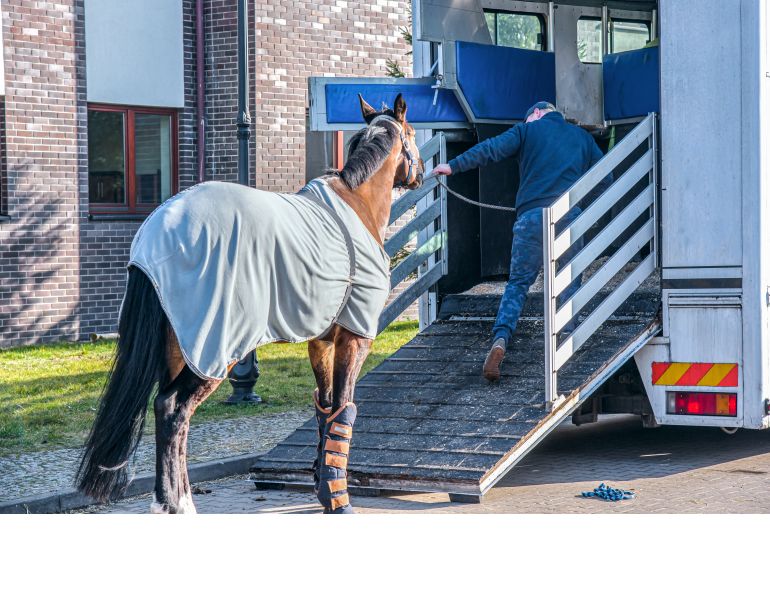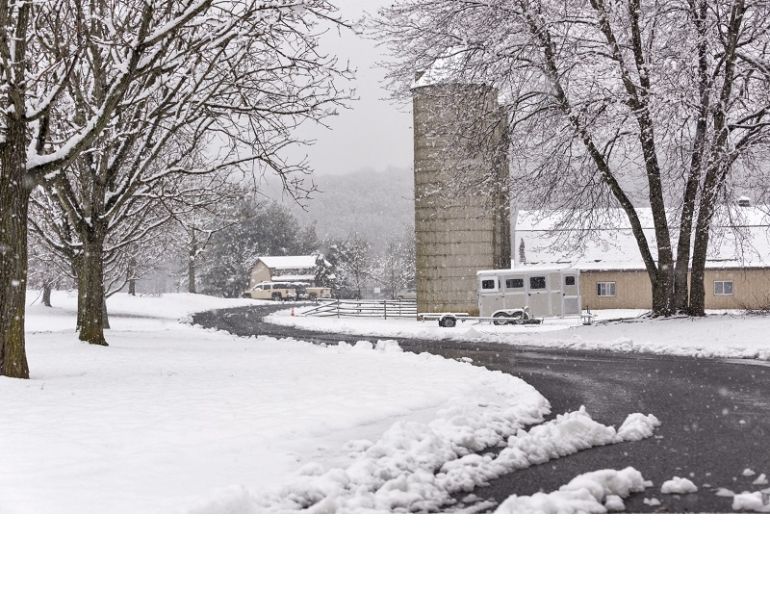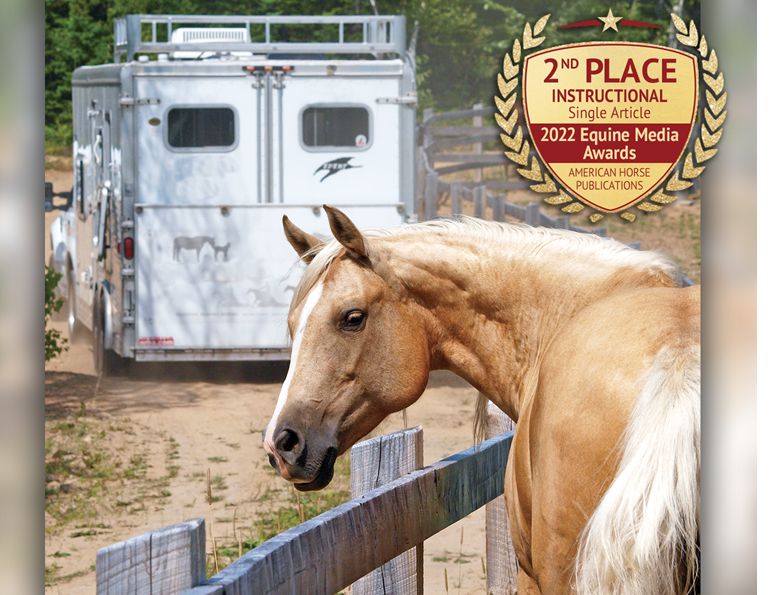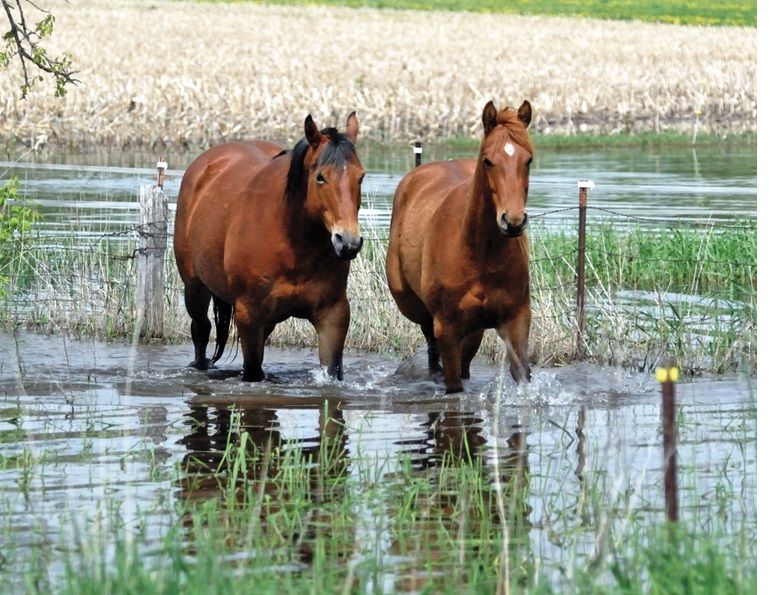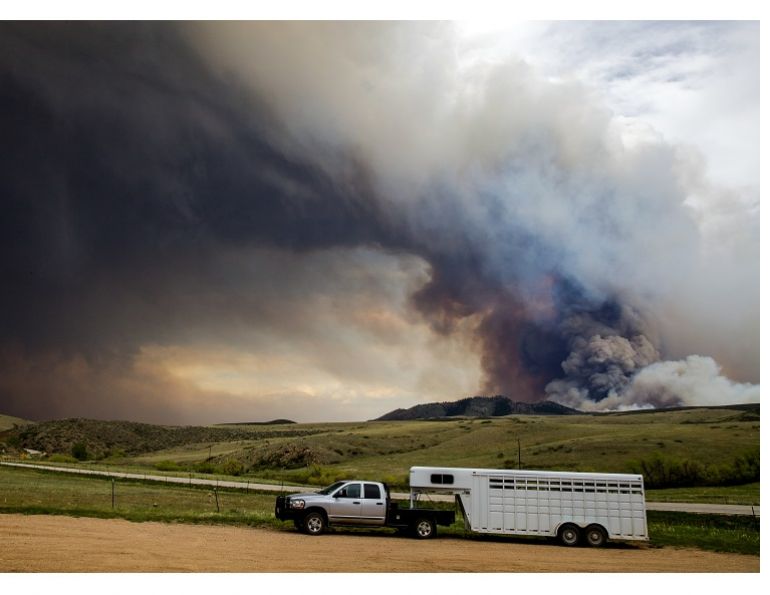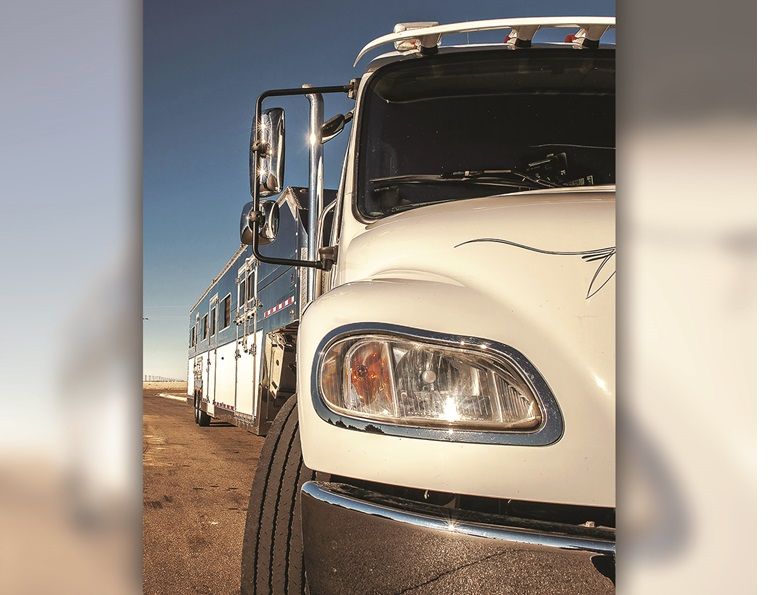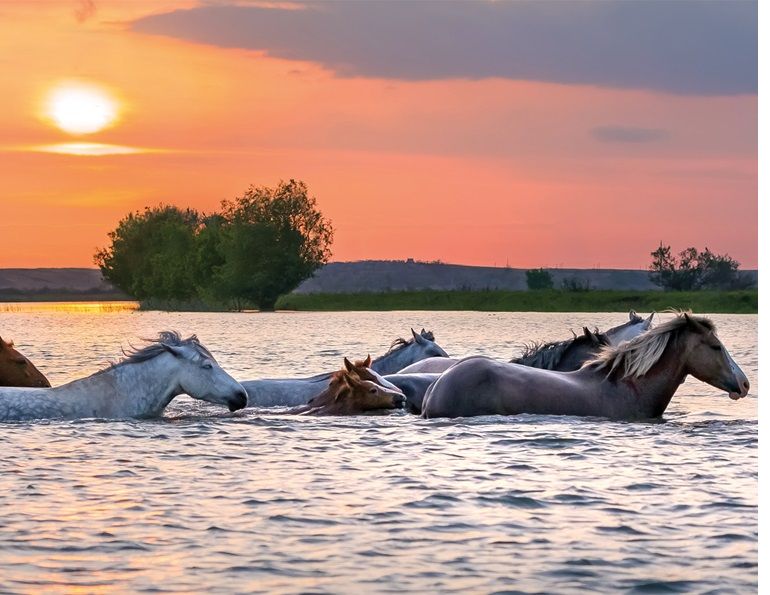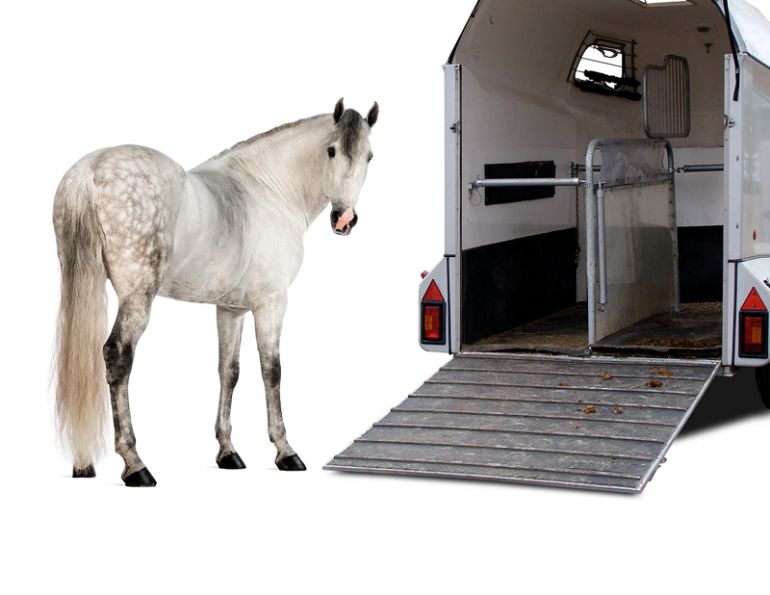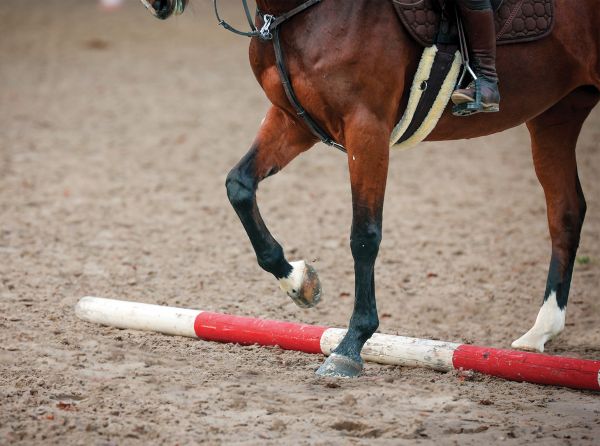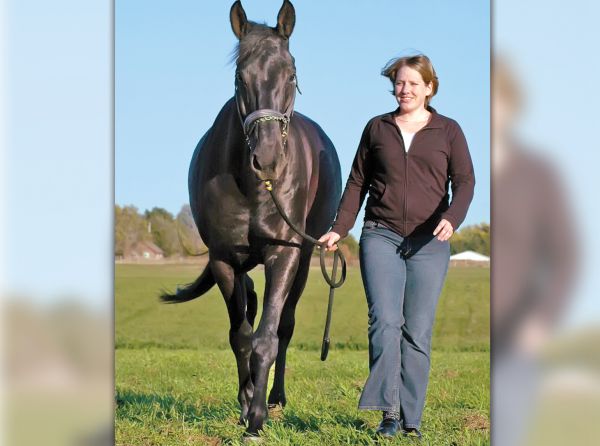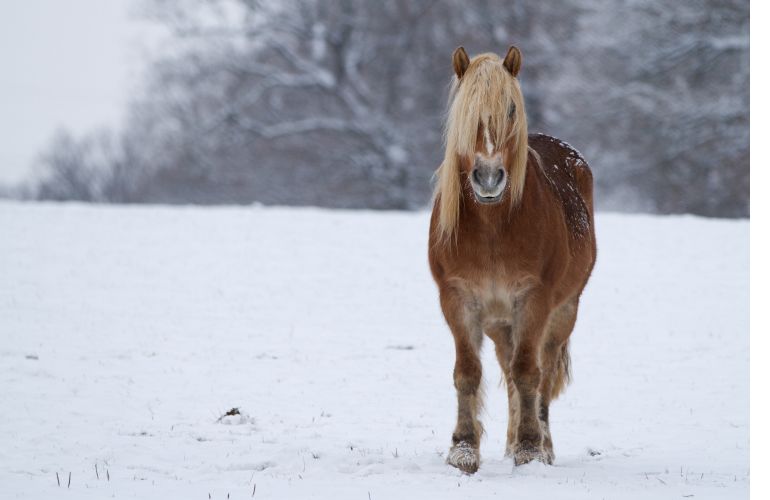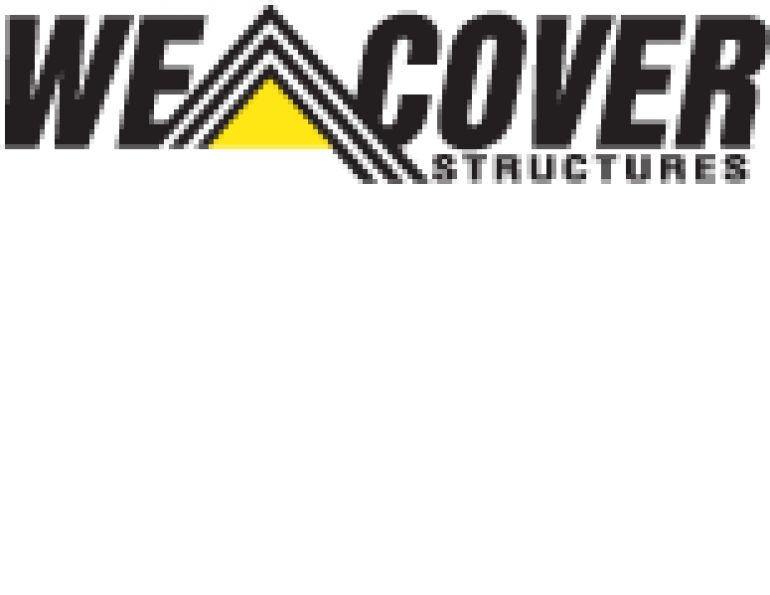By Kevan Garecki
If you’re in the market for a new (or new to you) horse trailer, there are a few very basic things to consider: How many horses will you be hauling at any one time? What size are they? How long is your average trip likely to be? What are the horses’ requirements for the trip? Will they need box stalls, or are standing stalls sufficient? What will you need to pack with you?
Trailer choices are almost as broad as truck options. Most of the more common manufacturers offer a quality product with well thought out design and good workmanship. Safety is always the primary concern. One common thread I’ve found with higher priced trailers is that they tend to be superior in design, especially as relates to safety.
Some trailer manufacturers with products aimed toward the infrequent rider have taken a disturbing approach to making their trailers more affordable, the thinking being that if Dobbin does not ride in the trailer very often, the trailer doesn’t need to be built to withstand steady service. This means lighter specifications for structural components, axles, and even tires. The end result is a trailer that is more affordable, and lighter and easier to tow with a smaller vehicle, but lacks the overall structural integrity and strength. Car makers have done this for years, which is why we have sub-compacts out there that cannot withstand even a minor parking lot impact without sustaining considerable damage. I wouldn’t ask my kids to ride in a car that didn’t provide them with the best protection, and I sure wouldn’t ask anyone’s horse to take that risk either.
I urge anyone considering the purchase of a trailer to do their homework before buying. Look for features and accessories that you actually need, and don’t let all those shiny bells and whistles entice you into spending more than you need to. Take the maxim “basic is better” to the trailer lot with you. The trailer should have whatever amenities you and your horses need for comfort and safety. If you absolutely must have that 42 foot polished stainless steel beauty with the built-in satellite TV and air conditioned horse box, go for it. Just remember, the more complicated the plumbing, the easier it is to plug up the drain.
Here are a few “musts” I would insist upon:
- Easy access for both horses and handler. A wide entry can make the difference between an easy load and “negotiating” with the horse.
- Windows and hatches at each head position. Horses trailer more easily when they can see outside, and a hatch can come in handy for getting to a panicked horse in an emergency. NEVER allow your horse to have his head out the window while the trailer is moving!
- Bright interior. If it isn’t white, it should be. Trailers can be dark, scary places. A horse will be more agreeable about stepping into something that doesn’t look like it’s going to eat him. Interior lights should be mounted in order to reduce glare while loading and avoid being hit or broken if the horse acts up.
- Padding in all the right places. If there’s a bar, wall, or post, the horse will eventually bump into it. I like to see padding on the top rail just inside the entranceway as well. There should be no sharp edges or protrusions… anywhere! Even a latch handle can cause serious injury if it’s in the wrong place.
- Ease of operation. Ensure that you can operate every feature on the trailer by yourself. It can be a little scary trying to load a horse and being unable to operate something at the same time.
- Ease of maintenance. A well-built trailer should last over 20 years before metal fatigue and deterioration becomes a factor, but I shouldn’t have to recruit an army of assistants every time I want to do routine trailer maintenance. Make sure wiring, hinges, moving parts, suspension, spare tires, and such are all easy to get at.
Main Photo: Monkeyatlarge/Flickr - Windows and hatches at each head position provide light and a view for the horses, and a way of reaching a panicked horse in the event of an emergency. NEVER allow your horse to have his head out the window while the trailer is moving!







